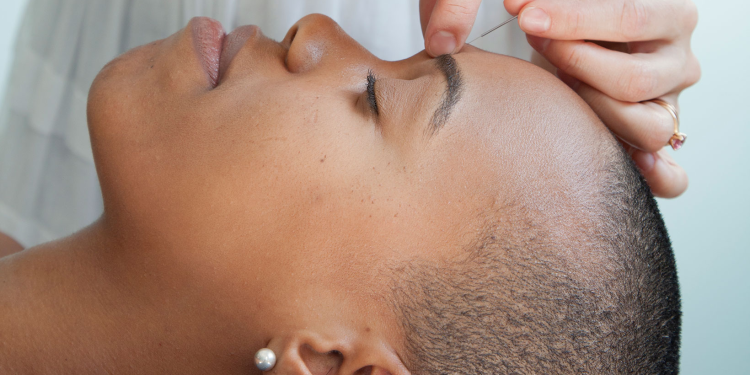Acupuncture is a traditional Chinese medical practice that involves inserting thin needles into the skin at specific points on the body. This is done in order to promote healing and balance within the body.
Acupuncture has been used for centuries to treat a variety of conditions, including pain relief, digestive issues, anxiety, and insomnia. In recent years, acupuncture has gained popularity in the Western world as an alternative treatment option.
If you are considering acupuncture for your health needs, it is important to find a qualified practitioner who can create a tailored treatment plan for you. Acupuncture is generally considered safe when performed by a trained professional. However, there are some risks associated with the procedure, so be sure to discuss these with your practitioner before proceeding.
Acupuncture is a popular complementary and alternative medicine (CAM) therapy. According to the National Institutes of Health (NIH), an estimated 3 million American adults and 150,000 children use acupuncture each year.
While there are many different CAM therapies available, acupuncture is one of the oldest and most extensively studied. It’s been used for centuries in Asia for a variety of conditions. In recent years, it’s gained popularity in the Western world as an alternative treatment option.
Acupuncture is generally considered safe when performed by a trained professional. However, there are some risks associated with the procedure, so be sure to discuss these with your practitioner before proceeding.
These Risks Include:
- Infection
- Bleeding
- Bruises
- Pain at the injection site
10 Health Benefits of Acupuncture
In recent years, acupuncture has gained popularity in the Western world as an alternative treatment for a number of conditions, including pain relief, anxiety, and depression.
There are many potential health benefits of acupuncture, including:
1. Pain Relief
Acupuncture is often used as a natural treatment for pain relief. It can be effective for a variety of different types of pain, including headaches, back pain, menstrual cramps, and arthritis.
2. Anxiety Relief
Acupuncture may also be helpful in reducing anxiety. A small study found that acupuncture was effective in reducing symptoms of anxiety in people with generalized anxiety disorder.
3. Depression Relief
Similarly, acupuncture may also be helpful in reducing symptoms of depression. A study published in the Journal of Traditional Chinese Medicine found that acupuncture was effective in improving symptoms of depression in patients with major depressive disorder.
4. Improved Sleep Quality
Acupuncture has been shown to improve sleep quality in some people. A study published in the journal Acupuncture in Medicine found that acupuncture was associated with improved sleep quality and decreased daytime fatigue in participants with chronic insomnia.
5. Boosted Immunity
There is some evidence that acupuncture can help boost immunity. A study published in the journal Cytokine found that acupuncture treatment increased levels of immunity-boosting cytokines in saliva samples from participants.
6. Reduced Stress
Acupuncture may help reduce stress levels. A study published in the journal Psychotherapy and Psychosomatics found that acupuncture was associated with a reduction in cortisol (a stress hormone) levels in participants with anxiety disorders.
7. Improved Circulation
Acupuncture may improve circulation. A study published in the journal BMC Complementary and Alternative Medicine found that acupuncture improved blood flow and lowered blood pressure in participants with hypertension.
8. Reduced Inflammation
There is some evidence that acupuncture may help reduce inflammation. A study published in the journal PLOS One found that acupuncture suppressed inflammation-related genes in the blood samples of participants with rheumatoid arthritis.
9. Regulated Menstrual Cycle
Acupuncture may help regulate menstrual cycles. A study published in the journal Acupuncture in Medicine found that acupuncture was associated with a reduction in menstrual pain and an increase in the number of participants with regular menstrual cycles.
10. Overall Well-Being
Ultimately, acupuncture may lead to an overall sense of well-being. A study published in the journal Complementary Therapies in Medicine found that acupuncture was associated with improved quality of life, reduced stress levels, and increased happiness levels in participants.
Why People Choose Acupuncture
There are many reasons why people might choose to undergo acupuncture. Some of the most common reasons include wanting to improve their overall health, alleviate pain, or treat a specific condition.
Acupuncture is thought to help improve overall health by promoting the flow of energy, or qi, through the body. It can also help to relieve pain by stimulating the release of endorphins, which are natural painkillers. And finally, acupuncture may be able to treat specific conditions by helping to restore balance in the body.
All of these benefits make acupuncture an appealing treatment option for many people. If you’re considering acupuncture, be sure to talk to your doctor about whether it’s right for you.
Conclusion
If you are considering acupuncture for your health needs, it is important to find a qualified practitioner who can create a tailored treatment plan for you. A trained and licensed acupuncturist will have the necessary skills and knowledge to provide you with safe and effective treatment.


